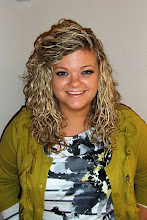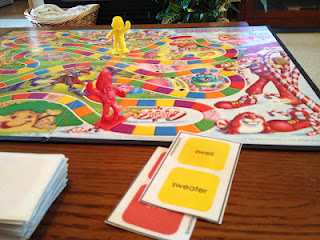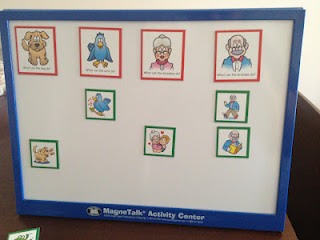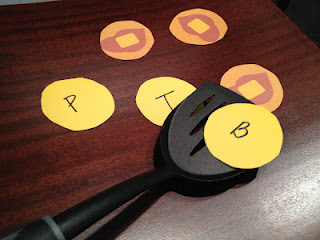An Interview with Jenna Rayburn, SLP
Teachers are so important in a child’s life. A child will often cherish the memories of a really great teacher for years after they graduate. Kids with speech disorders who work with a speech-language pathologist (SLP) are no different. SLPs try to make speech therapy fun and exciting to help the child learn speech and language skills without it feeling like a chore.
Kids who enter certified SLP Jenna Rayburn’s speech therapy room are likely to play an articulation-oriented game of Candy Land, work with magnets to create stories and learn proper sentence structure, and play a whole host of other innovative games while reaching their speech therapy goals. They can even work on their articulation skills while playing Twister. Jenna Rayburn uses her incredible creativity to turn children’s games into speech therapy lessons, and she shares her ideas on her blog, Speech Room News. Jenna loves incorporating both classic games and new technology into her lesson plans. Read on to find out Jenna’s tips for parents who are new to speech therapy and those who are looking for fun ways to do at-home speech therapy exercises.
Can you talk a bit about what a typical day looks like for you during the school year?
A typical day includes a meeting before school for our IAT (intervention assistance team) to discuss at-risk students. We gather a school-wide team including me as the SLP and develop interventions and determine the need for evaluations. When students arrive, I start therapy in small groups. I typically see about 30-35 students per day in groups up to 4. We meet for 25 minutes. I usually eat lunch at my desk while writing an IEP or an evaluation. I see more students in the afternoon. After school I catch up with teachers to talk about students, document everything I didn’t get a chance to record data on for that day, and complete Medicaid billing on the computer. At 4:00, I leave work to head to a nearby clinic where I work until 7:30. At the clinic I see students ages 2-12 in a one-on-one setting. It’s nice to work more directly with parents, plus it gives me the chance to interact with other great SLPs.
Parents who are new to the world of speech therapy can often feel pretty overwhelmed. What advice would you give to them about starting the IEP/IFSP process?
Be open with your SLP. Ask questions! Having family involved in the process is an important part of success. If you let your SLP know that you are willing to work on carryover skills they will give you some ideas for home practice! Having a child with many speech or language impairments can be overwhelming, so ask your SLP what one objective is the most important. Once you limit which goals you will focus on, don’t be afraid to get creative!
Your blog is jam-packed with lots of great activity ideas using both homemade and commercial items. If you had to list your top three activities that your speech therapy kids prefer, what would they be?
Commercial games are easy for parents and therapists to use because the kids think they are playing a game and not doing work! Try favorites like Candy Land, Head Bandz and Battle Ship! Have your students practice their learning targets before each turn!
Kids tend to progress best with a combination of speech therapy sessions and at-home speech therapy activities. What types of activities do you encourage parents to do with their kids at home to encourage speech and language development?
I encourage parents to practice their therapy homework in the car. I know how busy life gets! The time in the car can be used to practice. Grab a list of words to practice articulation words. Try to get in 100 trials before you get to your destination! If your child is working on language you can play a “Can you find the…” game! Search for categories (3 red things, 3 things that fly, etc) or rhyming items (car/star, sign/line). Get creative!
How do you feel about group therapy vs. one-on-one? Which works best for which types of kids?
Individual and group therapy both have their benefits. Group therapy can really be beneficial for students working on social skills or carryover of articulation. Individual speech therapy is often more appropriate for younger students.
Some kids might be a bit shy about starting speech therapy. How would you encourage them to participate and increase verbalization?
If parents can provide therapists with some insight about their student before the first session, that always helps! Sometimes I have parents bring a game or book that their child loves. I can have my new student explain directions or read me a book to get comfortable!
________________________________________________________________________________________________
Thanks so much for sharing your advice, Jenna! Your blog is proof that, with a little creativity, pretty much anything can be used to help a child excel in speech and language.
Be sure to check out Jenna Rayburn’s wealth of speech therapy ideas on her blog, Speech Room News.






